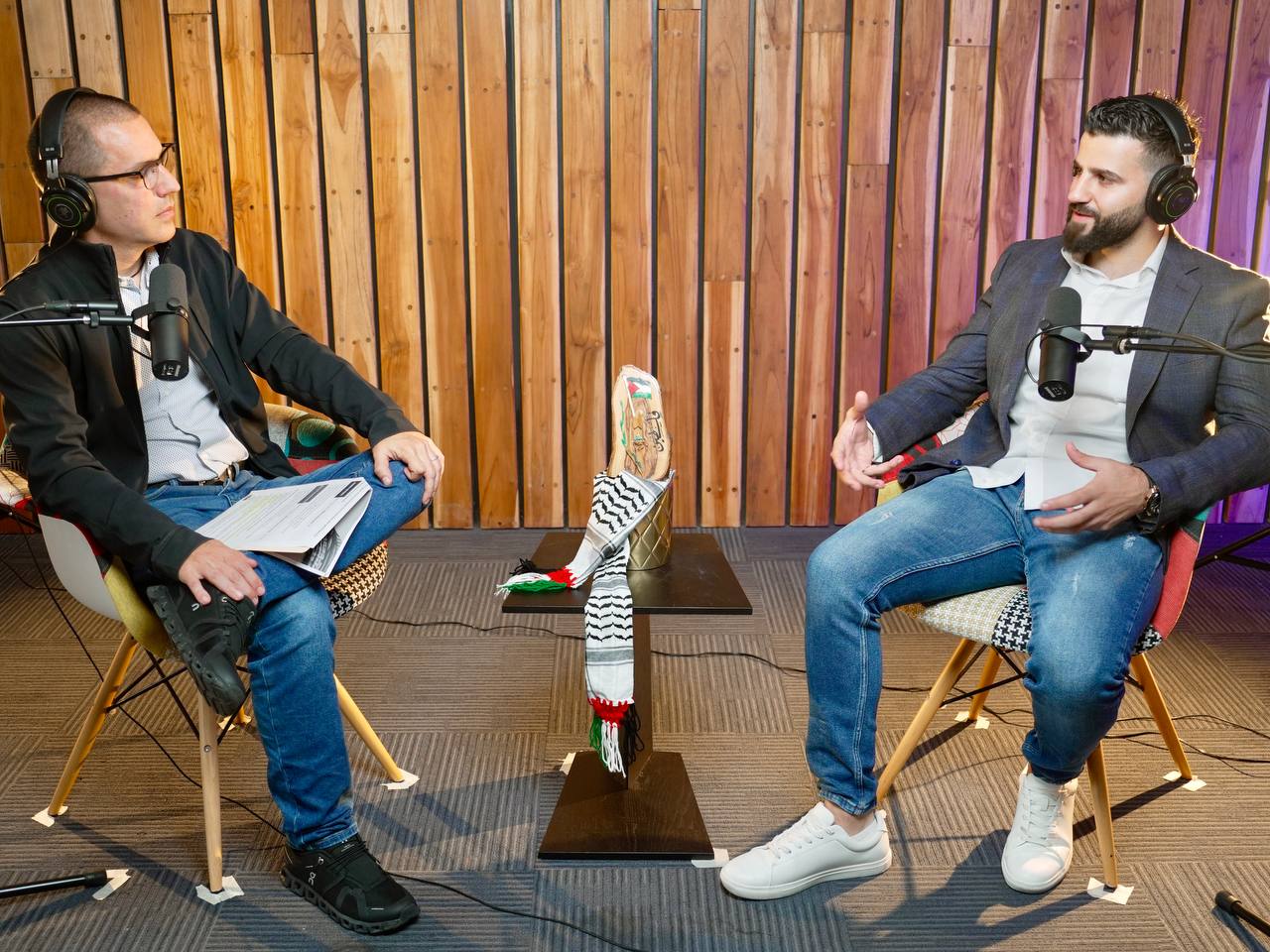Caracas, March 13, 2025 – During the premiere of the podcast Nuestras Voces, the Executive Secretary of the Bolivarian Alliance for the Peoples of Our America – Peoples’ Trade Treaty (ALBA-TCP), Jorge Arreaza, discussed the Palestinian Cause and the realities faced by this nation.
“Many peoples around the world are fighting for their liberation, but without a doubt, Palestine is the one that requires a thousand voices, a million voices to express its pain, its outrage, and its unwavering will to be free and to exist in its territory and with its status (…).It is Palestine’s voice that must be heard,” asserted Arreaza.
Ahmed Qaraqra, a young Palestinian who serves as the official spokesperson for the Fatah political organization in the Spanish-speaking world and a general and plastic surgeon, spoke about the health crisis in the West Bank, which has been directly impacted by attacks from the Israeli army.
The health crisis
He commented that in the Palestinian territory of the West Bank, there are no hospitals to rely on, no doctors, no anesthesia. “As a doctor, I know the Jenin hospital, and it was completely destroyed. It was a hospital that normally treated up to a million people. There is no respect for doctors, no impunity for healthcare facilities. The Israeli army can enter the operating room whenever they decide, and there are no authorities to stop them.”
During the podcast, Qaraqra also emphasized that the true descendants of the Hebrew people “are us, the Palestinians. We, the indigenous Palestinians, have mixed with various civilizations that have passed through our lands (…). That is why DNA testing is prohibited in Israel—it is banned by law, through a resolution approved by the acting Prime Minister, Benjamin Netanyahu.”
The Palestinian doctor rejected the notion of harboring prejudice against an Israeli individual without understanding the broader context. He affirmed that there are men and women in Israel who oppose the war. “There was a great deal of empathy toward the Jewish people who arrived in our land,” he remarked.
Qaraqra also spoke about the Nakba (catastrophe) after being asked about it by the ALBA-TCP Executive Secretary. Regarding this mass killing, he described it as a cruel act: “They would wipe out an entire village and leave behind a single child or young person so they could run to another territory.”
Living through a genocide
Meanwhile, Refaat Alathamna, a Palestinian with Bolivian nationality and an anesthesiologist at the European Hospital of Khan Younis in Gaza, commented via videoconference that the genocide has been devastating for Palestinian lives.
“It was extremely difficult to be both a doctor and a father. When we were given a one-day warning to evacuate, to find somewhere to go and take my children—I didn’t even know where—to a supposedly safe place, at the same time, I had a hospital shift because there was a crisis, and we had to work twice as hard. There was a shortage of doctors,” he recounted.
Alathamna revealed that hospitals and ambulances were heavily targeted by Israel. “It was very difficult to survive. I had to split myself in two. I have five children. My work was exhausting, I wasn’t paid a salary, everything was blocked. I lost everything—my apartment, my car. I fled with my children with just the clothes on our backs (…). Worst of all, there was nowhere to go.”
Both Palestinian citizens denounced Israel’s disregard for the ceasefire and called for the recognition of the Palestinian state as an independent nation.
Finally, Arreaza stated that Palestine has taught the world the meaning of solidarity, the power of communication, and the strength to resist.
